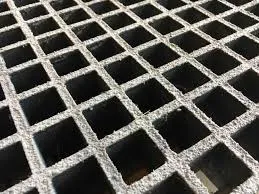
-
 Afrikaans
Afrikaans -
 Albanian
Albanian -
 Amharic
Amharic -
 Arabic
Arabic -
 Armenian
Armenian -
 Azerbaijani
Azerbaijani -
 Basque
Basque -
 Belarusian
Belarusian -
 Bengali
Bengali -
 Bosnian
Bosnian -
 Bulgarian
Bulgarian -
 Catalan
Catalan -
 Cebuano
Cebuano -
 China
China -
 China (Taiwan)
China (Taiwan) -
 Corsican
Corsican -
 Croatian
Croatian -
 Czech
Czech -
 Danish
Danish -
 Dutch
Dutch -
 English
English -
 Esperanto
Esperanto -
 Estonian
Estonian -
 Finnish
Finnish -
 French
French -
 Frisian
Frisian -
 Galician
Galician -
 Georgian
Georgian -
 German
German -
 Greek
Greek -
 Gujarati
Gujarati -
 Haitian Creole
Haitian Creole -
 hausa
hausa -
 hawaiian
hawaiian -
 Hebrew
Hebrew -
 Hindi
Hindi -
 Miao
Miao -
 Hungarian
Hungarian -
 Icelandic
Icelandic -
 igbo
igbo -
 Indonesian
Indonesian -
 irish
irish -
 Italian
Italian -
 Japanese
Japanese -
 Javanese
Javanese -
 Kannada
Kannada -
 kazakh
kazakh -
 Khmer
Khmer -
 Rwandese
Rwandese -
 Korean
Korean -
 Kurdish
Kurdish -
 Kyrgyz
Kyrgyz -
 Lao
Lao -
 Latin
Latin -
 Latvian
Latvian -
 Lithuanian
Lithuanian -
 Luxembourgish
Luxembourgish -
 Macedonian
Macedonian -
 Malgashi
Malgashi -
 Malay
Malay -
 Malayalam
Malayalam -
 Maltese
Maltese -
 Maori
Maori -
 Marathi
Marathi -
 Mongolian
Mongolian -
 Myanmar
Myanmar -
 Nepali
Nepali -
 Norwegian
Norwegian -
 Norwegian
Norwegian -
 Occitan
Occitan -
 Pashto
Pashto -
 Persian
Persian -
 Polish
Polish -
 Portuguese
Portuguese -
 Punjabi
Punjabi -
 Romanian
Romanian -
 Russian
Russian -
 Samoan
Samoan -
 Scottish Gaelic
Scottish Gaelic -
 Serbian
Serbian -
 Sesotho
Sesotho -
 Shona
Shona -
 Sindhi
Sindhi -
 Sinhala
Sinhala -
 Slovak
Slovak -
 Slovenian
Slovenian -
 Somali
Somali -
 Spanish
Spanish -
 Sundanese
Sundanese -
 Swahili
Swahili -
 Swedish
Swedish -
 Tagalog
Tagalog -
 Tajik
Tajik -
 Tamil
Tamil -
 Tatar
Tatar -
 Telugu
Telugu -
 Thai
Thai -
 Turkish
Turkish -
 Turkmen
Turkmen -
 Ukrainian
Ukrainian -
 Urdu
Urdu -
 Uighur
Uighur -
 Uzbek
Uzbek -
 Vietnamese
Vietnamese -
 Welsh
Welsh -
 Bantu
Bantu -
 Yiddish
Yiddish -
 Yoruba
Yoruba -
 Zulu
Zulu
Innovative Design and Applications of FRP Vessels in Modern Industries
Understanding FRP Vessels A Comprehensive Overview
Frp vessels, or Fiber Reinforced Polymer vessels, have increasingly become a vital component in various industries due to their durability, lightweight characteristics, and resistance to corrosion. As the demand for advanced materials and sustainable solutions continues to rise, FRP vessels are gaining popularity in the realms of chemical storage, water treatment, and transportation.
What are FRP Vessels?
FRP vessels are structures constructed using fiber-reinforced polymer composites. These composites consist of a polymer matrix reinforced with fibers, which can be glass, carbon, or aramid. The primary purpose of using these materials is to enhance the mechanical and thermal properties of the vessel compared to traditional materials like metal and plastic. The combination of fibers and resin results in a lightweight yet strong vessel capable of withstanding various environmental conditions and structural stresses.
Advantages of FRP Vessels
1. Corrosion Resistance One of the most significant advantages of FRP vessels is their outstanding resistance to corrosive substances. Unlike steel containers that may rust or corrode when exposed to harsh chemicals or moisture, FRP vessels maintain their structural integrity over time. This property makes them ideal for storing chemicals, wastewater, and other corrosive materials.
2. Lightweight The lower density of FRP compared to traditional metals ensures that vessels can be produced in larger sizes without the concern of excessive weight. This characteristic not only facilitates easier handling and transportation but also allows for more efficient structural design, particularly in applications requiring elevated installations.
3. Thermal Insulation FRP vessels can offer better thermal insulation than metal counterparts. This feature is crucial in applications where temperature fluctuations need to be controlled, minimizing heat transfer and protecting sensitive materials stored within.
4. Customization The manufacturing process of FRP vessels allows for a high degree of customization. Designers can easily modify the shape, size, and color of the vessels, enabling them to meet specific industry requirements or aesthetic preferences.
5. Cost-Effectiveness Although the initial investment in FRP technology may be higher compared to traditional materials, the long-term benefits often outweigh this cost. The longevity and reduced maintenance requirements of FRP vessels contribute to lower total lifecycle costs, making them an economically sound choice.
frp vessel

Applications of FRP Vessels
FRP vessels find application in numerous sectors, including
- Chemical Industry FRP vessels are commonly used for storing various chemicals and acids. Their resistance to corrosive substances ensures safety and longevity in chemical processing and storage.
- Water Treatment In water treatment facilities, FRP tanks are utilized for the storage of treated and untreated water, providing a safe solution that minimizes the risk of contamination.
- Oil and Gas In the oil and gas sector, FRP vessels are used for transporting chemicals and producing components for pipeline systems due to their lightweight and high corrosion resistance.
- Food and Beverage The food and beverage industry has adopted FRP technology for tanks and storage vessels because they are non-reactive and do not impart any taste or odor to the contents.
Future of FRP Vessels
As industries seek more sustainable and efficient solutions, the future of FRP vessels appears promising. Innovations in composite materials, including the use of bio-based resins and advanced reinforcement techniques, are expected to drive further development. Additionally, as regulations regarding chemical storage and environmental protection become more stringent, FRP vessels will likely play an increasingly crucial role in meeting these requirements.
Conclusion
FRP vessels represent a significant advancement in material technology, offering numerous advantages over traditional storage solutions. Their unparalleled resistance to corrosion, lightweight properties, and versatility make them ideal for a wide range of applications across various industries. As we continue to seek sustainable and effective solutions to modern challenges, FRP technology will undoubtedly remain at the forefront of innovation.









